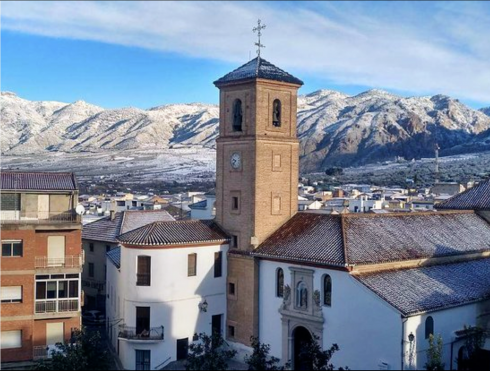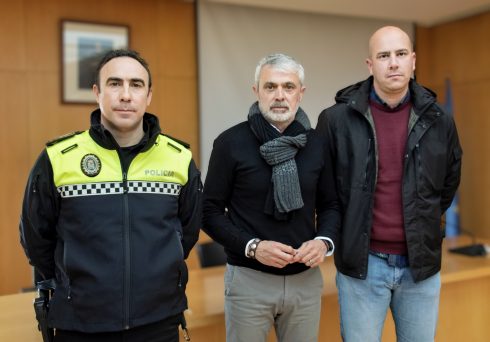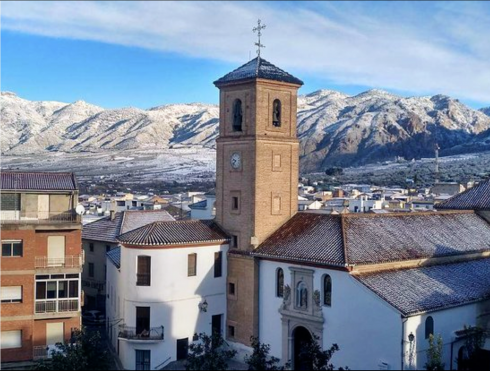SPANISH law-making is currently under the spotlight. The controversial ‘Solo Si es Si’ legislation, designed to improve the sentencing of sex offenders, based on clear consent, has given some convicts an early “get out of jail” card. This is because it allows the retrospective revision of existing sentences, which wasn’t the intention. Following huge public outcry, it’s going to be reworded. Does Spain have other laws that don’t do their job?
The residents of rural Granada certainly think so. In the thriving Alpujarran market town of Órgiva, a wave of petty crime is leaving residents frustrated. Most of the theft is caused by a couple of light-fingered people, who smash car windows and enter private property to steal whatever is lying around. One Brit, while enjoying a drink on a bar terrace, was offered stolen goods from her own parked car.
The towns of Dúrcal, Cónchar, Cozvíjar y Otura, in and around Granada’s Lecrin Valley, have reported similar problems. The mini crimewave has reportedly spiked since the end of 2022, perhaps fuelled by the cost of living crisis, as well as drug addiction issues, in a region with limited rehabilitation and mental health facilites.

Petty crime is considered “light” under Spanish law
To the annoyance of victims, the Spanish penal system views the crime of robo – robbery without violence – as a delito leve (minor crime). Hurto, using force, is more serious.
Under the penal code, judges release robbers directly after their court case. Sometimes, after leaving the court room, they steal again the same day.
Francisco José Ortega Moreno, a solicitor at AF Consulting, Motril, says: “With minor offences, formerly known as delitos leves, there’s no arrest. You’re only cited for the date of the speedy trial and nothing else. In more serious cases, unless it is a very serious crime, or there’s a risk of escape, or eliminating evidence, the judge usually agrees to release the detainee on the same day they go to court. All this is set out in the Penal Code and Spanish Criminal Procedure Law.”

Unimpressed with the grindings of the law, Órgiva residents recently petitioned their town hall to find a solution, with about 70 businesses owners and residents meeting the mayor, security councillor, and local police, on February 7.
Suggestions included increasing police patrols in the area and neighbourhood watch schemes. However, police allocation is down to the Junta de Andalucia, not municipal town halls. As the petty crimes are considered leve – unlike crimes of sangre (violent crime) – and tend to be under-reported by victims anyway, the statistics show “low danger” for resource provisioning.
Dislike of denuncias
Furthermore, some Brits tell the Olive Press that they dislike the existing denuncia system, because criminals can see who reported them, possibly causing reprisals. Therefore, many people choose to keep quiet.
And that’s not the only problem. If non-residents, such as holidaymakers, denounce crime in Spain, they can be recalled as a testigo (witness) if it goes to court. Witnesses are required to attend at their own cost unless they produce a valid reason not to fly – such as tickets for a coinciding holiday or important work event.
The Spanish judicial system can clearly be frustrating for all concerned. Levi Gómez Acosta, security councillor of Órgiva, and local policeman, Antonio Muñoz, point out that “the paperwork to report a theft of a 5e phone cable from a car takes the same time as credit card theft.”
Órgiva mayor, Raul Orellana, urges people to denounce, regardless of the paperwork. This sentiment is echoed by Julio Prieto, mayor of Dúrcal, “so it can be officially recorded in the statistics.” The nearby towns of Padul, Cónchar, Cozvíjar and Otura back the same effort.
The mayors are currently appealing to the sub-delegation of the Junta de Andalucia for more resources to fight petty crime.

Protect yourself against theft:
How to protect your property
A common tactic with fincas and cortijos is to deter trespassers with “private property” and “beware of the dog” signs. Some people have guard dogs who will – at very least – bark and make a fuss if strangers approach.
Solicitor Francisco José Ortega Moreno advises: “You’re not required to put a ‘private’ sign on your property. The law is already the sign. The sign is just a reinforcement. The penal code already sets the limits. However, I would advise mounting a sign if you have a dog.”
He says that, if your dog bites an intruder inside your private property, you are not responsible. The intruder had no right to enter.
As for trespassers on rural properties with entrance tracks, he adds: “There are roads that are private, and you can block the entrance with a chain. Of course, anyone walking along can use it, although they shouldn’t. From a legal point of view, it’s private property and they can’t use it.”
What if you retaliate
About protecting your property in person, Fran says: “This is complex. There are books and books devoted to this subject. In short, the answer is proportionality. It means that your response must be proportional to the aggression you’re suffering. If you are being robbed with a knife, for example, it is disproportionate to shoot with a gun.”
He adds: “There must be a proportional relationship between your response and the aggression. And of course, this is something for the judge to decide.”
Be careful, as there are many known cases of the criminal denouncing the intended victim.
Video cameras
Spain’s CCTV rules aren’t entirely straightforward. To avoid problems, take advice from a specialist company.
Fran says: “There is no limit to recording within your property. Outside your property, it’s not allowed because of personal data protection.”
You shouldn’t film public spaces or your neighbour’s land. It’s also prohibited to mount fake cameras to make a neighbour believe you’re filming them.
Before taking still images or recording video, the camera owner must register the device with the Spanish Agency for Data Protection (AEPD). If you have CCTV cameras, you’re legally obliged to mount clearly visible signs advising passers-by of the video surveillance.
How to protect your car
With car crime, you need to apply common sense. When parking in city centres, ferias, and notorious neighbourhoods, some simple rules apply.
Never leave key in the ignition, don’t leave car doors unlocked, and never leave handbags, phones, laptops, or other valuables in the vehicle. Items that you can’t carry with you should be hidden or shut in the boot. Don’t leave vital personal paperwork or money in the glove compartment.
In towns, try to find an attended carpark. Even if it costs a few euros, this is cheaper than dealing with stolen items or a smashed window.
If there’s no secure parking, seek a space where there’s high footfall – not in hidden corners or quiet carparks on the edge of town. At night, park under streetlights or near all-night shops and takeaways. Another option is to park near the nearest Guardia Civil cuartel, where there’s CCTV coverage.
READ MORE

